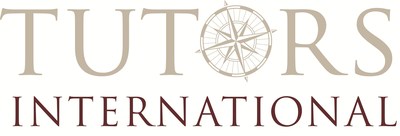Fintech PR
Family Offices Address Inadequate Financial Literacy in Schools by Partnering With Private Tutors

OXFORD, England, Dec. 7, 2023 /PRNewswire/ — Tutors International today revealed a growing number of Family Offices are taking their clients’ financial education into their own hands, partnering with private tutoring firms to provide a more comprehensive level of financial literacy than the children in UHNW families are receiving in school.
As Family Offices are increasingly becoming more involved in advising and supporting their clients in all aspects of their lives – not just financial matters, Tutors International has been asked to support various Family Offices in their role as managers of family wealth and educators around the management of that wealth.
Adam Caller, CEO of Tutors International, comments:
“Whether it’s additional support in a particular subject, or live-in tutors that take the place of school, we’re in the unique position of already recruiting exceptional educators for wealthy families. Most of our clients have a Family Office, so it’s not surprising that as we become known to wealth managers they recognise the benefit of incorporating more in-depth financial literacy into their clients’ children’s education.”
The financial literacy problem
There is evidence of a problem around financial literacy in private school education. The standard of financial literacy taught in private schools in the UK varies from school to school. There is no national curriculum for financial literacy in the UK, so private schools are not required to teach any specific financial topics.
A 2023 survey by the Money and Pensions Service found that less than half of UK children have been taught about money at home or in school.[1] This suggests that there is a need for more financial literacy education in all schools, including private schools.
To address the problem, some private schools in the UK now offer more comprehensive financial literacy programs, for example:
- The King’s School, Canterbury offers a comprehensive financial literacy program covers topics such as budgeting, saving, investing, and debt management.
- Haberdashers’ Aske’s Knights’ Academy, Lewisham offers a financial literacy program that is taught by qualified financial advisors
- St Paul’s Girls’ School, Hammersmith offers a financial literacy program that is taught by teachers who have received specialist training in financial education, covering topics such as budgeting, saving, and investing.
School financial literacy programs are not tailored to the needs of UHNW families
UHNW families often feel that the financial literacy curriculum in schools is too limited and does not cover all of the topics that their children need to know. They may want their children to learn about complex financial concepts such as estate planning, philanthropy, and managing wealth across generations.
They may need to learn about topics such as dealing with the complexities of trusts and foundations, managing wealth across generations, and navigating the unique tax implications of their wealth.
UHNW families are addressing financial literacy shortcomings
To address these perceived shortcomings, UHNW families are taking proactive measures to supplement their children’s financial education.
Hiring private tutors can provide more in-depth instruction on complex financial topics and tailor their teaching to the specific needs of the child, addressing the limitations of the standard curriculum.
Adam Caller, CEO of Tutors International, comments:
“Family Offices and their clients want to prepare the next generation for the complexities of managing their personal and family wealth. Incorporating a deeper level of financial literacy into students’ education is therefore of vital importance. Sadly, private schools are not providing the breadth or depth many of these families need for their children, so our tutors work with their Family Office to incorporate greater financial education into their curriculum.”
Private Tutors are implementing a variety of initiatives to enhance financial literacy among students:
- Tutors are incorporating financial literacy concepts into existing subjects, such as maths, social studies, and language arts, which helps cement the relevance of financial literacy to students’ everyday lives.
- Partnering with financial institutions and the Family Office to provide students with access to custom financial education resources, including workshops and financial simulations.
- Private tutors are using a variety of technology tools to deliver financial education to students. This includes online courses, interactive games, and mobile apps.
Joanna Dunckley Phillips has been a private tutor with Tutors International for more than 10 years, and she explains how incorporating real-life examples of financial concepts into day-to-day teaching, and having the time and freedom to explore them further is one of the great advantages of private tutoring:
“One of the most rewarding things about our one-to-one, personally tailored educational model is that it allows us to apply the skills and theory learned in the classroom to real life examples and projects.
“When teaching compound interest, it is always fascinating to give my students an imaginary salary and budget, then have them work out how much they could reasonably save over the course of their working life. This always leads to discussions about salaries, taxes, cost of living, investment etc. Add to this a simple demonstration of how credit card APR works and they are often surprised – but hopefully wiser! Having the time and freedom to complete these projects and answer all the many questions that arise, is one of the great benefits of the tutoring model.”
Private Tutor, Mark Cleaver, agrees:
“It is a shocking anomaly that it has been so neglected in schools until now. Working as a private tutor opens up thrilling new possibilities for financial education; students can engage with creative and enriching experiences through project-based learning. By creating a business plan for an entrepreneurial idea of theirs, or by managing a budget (either real or hypothetical) for a trip they are planning, students can learn by doing and see that financial literacy is not something of which to be scared; instead, it is lively, vital and exciting.”
Sources
[1] UK Children and Young People’s Financial Wellbeing Survey: Financial Foundations, 2023, Money and Pensions Service, https://maps.org.uk/en/media-centre/press-releases/2023/less-than-half-of-uk-children-have-been-taught-about-money#
Tutors International provides an unparalleled private tutoring service that matches the right private home tutor with the right child for the student to reach their personal potential and academic excellence fully. Delivering an international private tuition service for children of all ages at different points in their educational journeys, Tutors International is founded on a commitment to finding the perfect tutor to realise each student’s specific goals and aspirations. Tutors are available for full-time residential positions, after-school assistance, and home-schooling.
Founded in 1999 by Adam Caller, Tutors International is a private company based in Oxford, a city renowned for academic excellence. Our select clientele receives a personally tailored service, with discretion and confidentiality guaranteed.
Web: www.tutors-international.com
Email: [email protected]
Phone: +44 (0) 1865 435 135
Tutors International
Prama House
267 Banbury Road
Oxford OX2 7HT
England
Photo – https://mma.prnewswire.com/media/2295756/Tutors_International.jpg
Logo – https://mma.prnewswire.com/media/699064/4445114/Tutors_International_Logo.jpg

![]() View original content:https://www.prnewswire.co.uk/news-releases/family-offices-address-inadequate-financial-literacy-in-schools-by-partnering-with-private-tutors-302009180.html
View original content:https://www.prnewswire.co.uk/news-releases/family-offices-address-inadequate-financial-literacy-in-schools-by-partnering-with-private-tutors-302009180.html

Fintech PR
President Emmerson Mnangagwa met this week with Zambia’s former Vice President and Special Envoy Enoch Kavindele to discuss SADC’s candidate for the AfDB
President Mnangagwa, who is SADC Chairperson, reaffirmed his own country’s and SADC’s enthusiastic support for Zambian candidate Sam Maimbo
LUSAKA, Zambia, Dec. 20, 2024 /PRNewswire/ — Special Envoy Kavindele released the following statement following the meeting:
“I am elated to witness the growing success and momentum of Sam Maimbo’s candidacy to become the next President of the African Development Bank. I am filled with gratitude to our friends across both SADC and COMESA for their continued support and good wishes.
Sam has garnered such wide consensus due to his being uniquely qualified to deliver the transformative change and empowerment our continent needs. Sam’s 30 years in development work is defined by driving outcomes, improving processes, and investing in people. The AfDB needs a hands-on leader who is laser focused on delivering results and who is unafraid of making tough decisions in order to best serve our continent. Sam is that leader. Sam has the track record and experience to drastically enhance the pace, scale, and impact of the Bank’s work in service of the people and governments of Africa.
Our region has a proud history of supporting fellow Southern Africans. For example, we all recall Lusaka’s role in hosting the African National Congress’ headquarters during the dark days of Apartheid oppression.
It therefore gives me no pleasure to observe my South African brothers, who have themselves leant on Zambia’s steadfast friendship over many decades, fail to rally behind both SADC and COMESA’s chosen candidate for the AfDB. Africa’s urgent economic development challenges demand transformational leadership at the AfDB, it is all of our responsibility to put forward the best candidate for the job. This is not the time or place for a government to act with narrow self-interest, we all must act in the continent’s and AfDB’s best interest.
I thank Sam Maimbo for his lifelong service to our entire continent, and I am eager to witness his enormous impact as President of the AfDB.”

Fintech PR
Stay Cyber Safe This Holiday Season: Heimdal’s Checklist for Business Security
LONDON, Dec. 20, 2024 /PRNewswire/ — Heimdal Security shares a practical holiday cybersecurity checklist, offering expert insights to help businesses safeguard against cyber threats this festive season.
With reduced staffing, remote work setups, and a surge in online shopping creating heightened vulnerabilities, this guide offers actionable tips to enhance business security.
Going beyond basic advice, the checklist also highlights the most common holiday scams and features videos showcasing real-life examples of Christmas-themed cyber scams and effective prevention strategies.
Key Tips to Protect Businesses This Holiday Season:
- Strengthen endpoints: Ensure devices are updated with antivirus and endpoint protection software; consider Endpoint Detection and Response (EDR) and application whitelisting.
- Prepare for phishing spikes: Train staff to identify suspicious emails, enforce robust email filters, and establish protocols for reporting unusual activity.
- Secure remote access: Mandate VPN usage, monitor unusual logins, and deactivate inactive accounts temporarily.
- Segment and shield networks: Isolate sensitive areas, deploy DNS security and advanced firewalls, and maintain full visibility over network traffic.
- Apply timely patches: Regularly update all systems and test patches in a controlled environment to minimize disruptions.
- Mitigate supply chain risks: Assess vendors thoroughly and limit their access to essential systems.
- Have a response plan ready: Tailor incident protocols for the holidays, create an on-call rotation for the IT team, and enable rapid action against suspicious activity.
“ Cybercriminals thrive on holiday distractions, but with proactive measures like phishing training, secure endpoints, and network segmentation, businesses can stay ahead of potential threats,” said Alex Panait, System Administrator at Heimdal Security.
Common Holiday Scams That Businesses Should Watch For:
Cybercriminals often tailor their tactics to exploit the festive season. The most common scams include:
- Spear phishing: Emails disguised as holiday bonuses or event invitations that steal credentials or spread malware.
- Malicious holiday E-Cards: Festive greetings that contain links deploying ransomware or spyware.
- Fake E-Commerce sites: Fraudulent websites offering discounts to steal payment information.
- Insider threats: Distracted or disgruntled employees mishandling or exploiting sensitive data.
- Corporate travel scams: Fake booking platforms targeting business travelers.
- Business email compromise (BEC): Fraudulent requests for urgent wire transfers during year-end financial rushes.
For more, read the full article here or watch the video on YouTube to see how these threats unfold and learn actionable prevention strategies.
About Heimdal:
Established in Copenhagen in 2014, Heimdal® empowers CISOs, security teams, and IT administrators to improve their security operations, reduce alert fatigue, and implement proactive measures through a unified command and control platform.
Heimdal’s award-winning cybersecurity solutions span the entire IT estate, addressing challenges from endpoint to network levels, including vulnerability management, privileged access, Zero Trust implementation, and ransomware prevention.
For further press information:
Madalina Popovici
Media Relations Manager
[email protected]
View original content:https://www.prnewswire.co.uk/news-releases/stay-cyber-safe-this-holiday-season-heimdals-checklist-for-business-security-302337465.html

Fintech PR
According to Tickmill survey, 3 in 10 Britons in economic difficulty: Purchasing power down 41% since 2004
The people who have the most problems are women (30%) and are between 35 and 49 years old (39%)
ROME, Dec. 20, 2024 /PRNewswire/ — The purchasing power in the UK has dropped by 41% over the last 20 years. Today, £100,000 left in a bank account since 2004 without being invested would now be worth £59,021.
This figure is one of the findings from a study conducted by Tickmill, an international online trading broker that compared the economic situation in the UK and the European Union through the infographic “Purchasing Power and Cost of Living: UK vs EU”.
The analysis reveals a slight decline of 0.4% in the UK’s purchasing power, which currently stands at £41,573. In contrast, the European Union has seen a modest rise of 0.1%, reaching £40,874.
Why is purchasing power declining in the UK? One key factor is the cost of living. If the UK were still part of the European Union, it would rank as the fifth most expensive country, behind Ireland, Luxembourg, Denmark, and the Netherlands.
Unsurprisingly, 3 in 10 Britons are struggling with the cost of living. Women (3 in 10, compared to 25% of men), those aged between 35 and 49 (4 in 10), households earning less than £15,000 (6 in 10), and single parents (1 in 2) are among the most affected groups.
Among UK nations, Northern Ireland is the hardest hit, with 34% of its population facing financial difficulties, followed by Wales (31%), England (28%), and Scotland (22%). In England, the North East has the highest percentage of people struggling, with 4 in 10 residents affected. Even in London, the high costs impact 1 in 4 adults.
In response to these challenges, Britons are making significant adjustments:
- 53% have cut back or delayed spending on smaller items like eating out, entertainment, subscriptions, clothing, toys, books, etc.;
- 52% have reduced household energy consumption;
- 48% have decreased their grocery spending;
- 41% have scaled back or postponed major expenditures, such as holidays, cars, and weddings;
- 26% are working longer hours, taking on overtime, or pursuing additional jobs to earn extra income.
The British also made changes on the financial side. One in four adults has been forced to dip into their savings or investments to cover daily expenses. Moreover, 44% have stopped saving or investing entirely or have reduced their savings and investments—a 4% increase compared to 2023.
The lack of investment is another critical factor contributing to the decline in purchasing power. It is estimated that 13 million UK residents hold £430 billion in cash deposits but do not invest. The reasons? Seventy-four percent say they cannot compare investment products effectively, and 43% are afraid of losing their money.
A lack of knowledge and fear are preventing many savers from taking advantage of an important opportunity: preserving or increasing their purchasing power in the long term.
Photo: https://mma.prnewswire.com/media/2586123/Tickmill.jpg
Logo: https://mma.prnewswire.com/media/2586129/Tickmill_Logo.jpg
![]() View original content to download multimedia:https://www.prnewswire.co.uk/news-releases/according-to-tickmill-survey-3-in-10-britons-in-economic-difficulty-purchasing-power-down-41-since-2004-302337354.html
View original content to download multimedia:https://www.prnewswire.co.uk/news-releases/according-to-tickmill-survey-3-in-10-britons-in-economic-difficulty-purchasing-power-down-41-since-2004-302337354.html

-

 Fintech5 days ago
Fintech5 days agoFintech Pulse: Your Daily Industry Brief (Synapse, Shenzhen Institute, Visa, AutomatIQ, MeridianLink)
-

 Fintech4 days ago
Fintech4 days agoFintech Pulse: Your Daily Industry Brief (Revolut, Bestow, Advyzon, Tyme Group, Nubank)
-

 Fintech2 days ago
Fintech2 days agoFintech Pulse: Your Daily Industry Brief (Chime, ZBD, MiCA)
-

 Fintech4 days ago
Fintech4 days agoAsian Financial Forum returns as region’s first major international financial assembly in 2025
-

 Fintech5 days ago
Fintech5 days agoNASDAQ-Listed LYTUS Appoints Visionary Leader Sai Guna Ranjan Puranam as COO (Lytus Healthcare) and Group CTO (Lytus Technologies) to Revolutionize Healthcare and Technology
-

 Fintech5 days ago
Fintech5 days agoDhaka Court Dismisses Allegations Against Nagad Founder Tanvir A Mishuk
-

 Fintech PR3 days ago
Fintech PR3 days agoGan & Lee Pharmaceuticals Announces U.S. FDA Clearance of the IND application for the innovative Bi-weekly GLP-1RA GZR18 Injection, Bofanglutide, with chronic weight management Indication (A Phase 2 head-to-head with Tirzepatide clinical trial)
-

 Fintech PR5 days ago
Fintech PR5 days agoFrost & Sullivan Recognizes AllianceOne and Central Florida Expressway Authority with 2024 Customer Value Leadership Award





